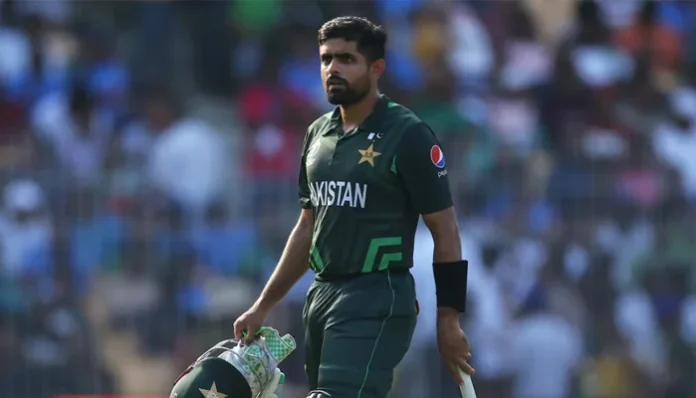Pakistan’s captain, Babar Azam, has come under scrutiny for his performance in the ongoing ICC Men’s ODI World Cup 2023. While he has shown consistency with three fifties in six matches, there are concerns regarding his strike rate, particularly in innings where Pakistan bats first. In those situations, his strike rate has been on the lower side, with his most recent innings against South Africa having a strike rate of 76.92.
Babar Azam, the No. 1 ranked batter, is expected to set the tone for his team as the captain, and his strike rate in these situations might not be seen as optimal, especially in the modern era of aggressive cricket. His innings against Afghanistan and India, where he had better strike rates of 80.43 and 86.20 respectively, are examples of his ability to accelerate when needed.
On the other hand, emerging batter Abdullah Shafique also had a relatively slower strike rate of 77.3 in his innings, contributing to the scrutiny of Pakistan’s overall approach. In the context of modern ODI cricket, where higher strike rates are often valued, both Babar Azam and Shafique may face expectations to improve their scoring tempo, particularly in the early stages of the innings.
It’s important for Pakistan to strike a balance between stability and aggression in their batting approach, especially in a tournament as competitive as the World Cup, where scoring at a brisk pace is often crucial for success.


